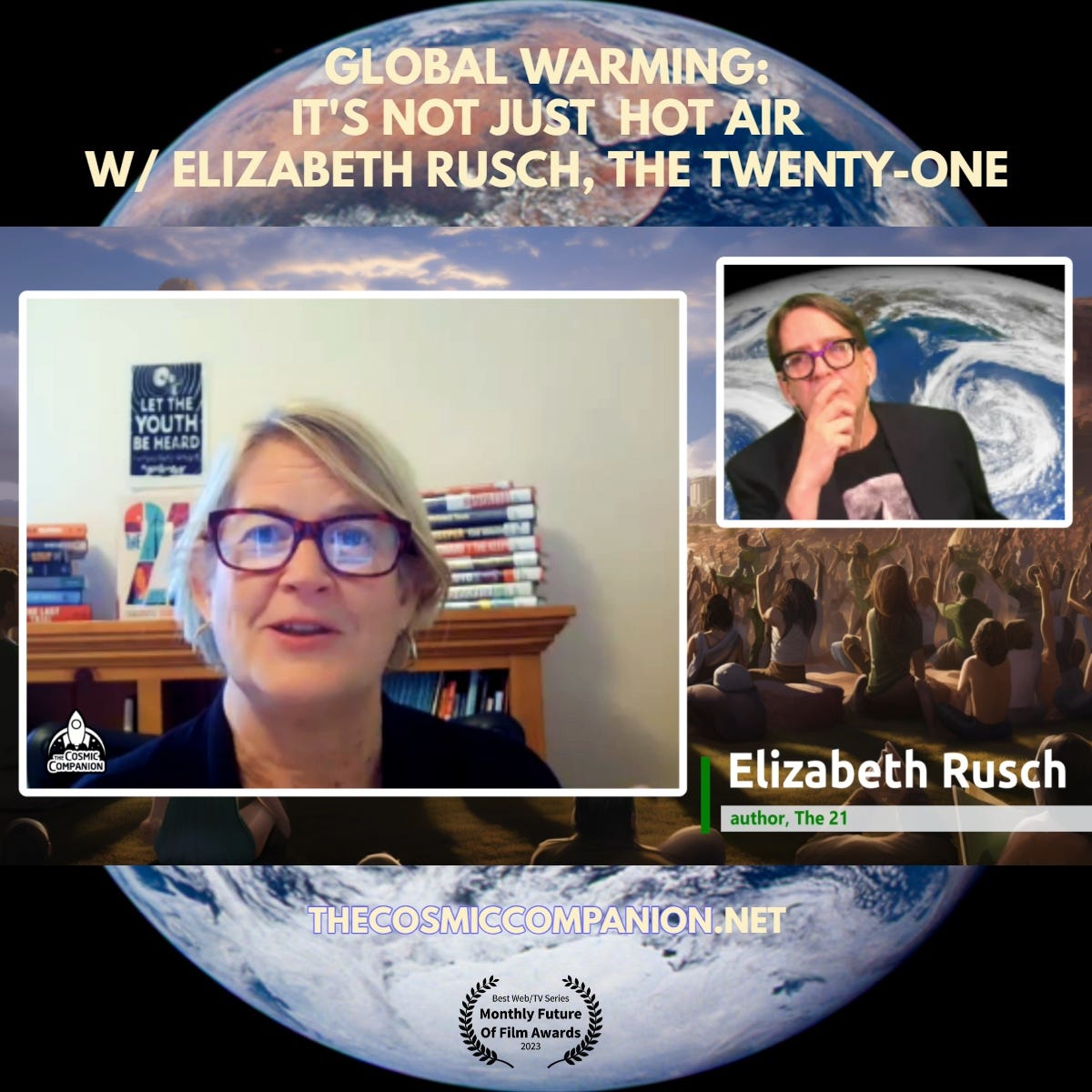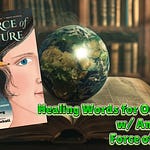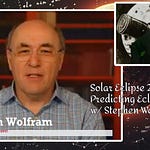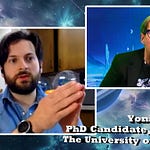Hello everyone!
This week on The Cosmic Companion, we look at Global Warming - It's Not Just Hot Air! We will be talking with Elizabeth Rusch, author of The 21.
Climate change, the ultimate uninvited guest, has been making itself quite comfortable lately. It's like that distant cousin who shows up unannounced, cranks up the heat, and then leaves the door open.
[Cousin! Yo! Cousin! I turned the heat up!]
The science behind global warming is as fascinating as it is concerning.
Since the Industrial Revolution, we've been burning fossil fuels like a barbecue at a Texas tailgate party, releasing greenhouse gases into the atmosphere...
Elizabeth Rusch appears on The Cosmic Companion 14 October 2023. Creative Commons 4.0 Attribution 2023 The Cosmic Companion.
The science behind global warming is as fascinating as it is concerning.
Since the Industrial Revolution, we’ve been burning fossil fuels like a barbecue at a Texas tailgate party, releasing greenhouse gases into the atmosphere.
Sunlight reaching Earth from our local stellar furnace comes in a wide range of wavelengths, striking everything from oceans and forests to the cats of Istanbul.
These objects tend to release this energy in the form of infrared waves, which are then absorbed by carbon dioxide like a lobster entering a trap.
[FREE THE LOBSTERS!]
This warming is causing our ice caps to melt at concerning rates, leading to rising sea levels, as well as a loss of habitat for animals of the Arctic and Antarctic.
In fact, I think P-Span is showing some coverage from the floor of Congress right now…
[[PENGUIN SKIT]]
Global climate change is also causing more intense storms and rainfall in some areas, while other places are left as dry as the humor on this show.
It is also vital to remember that not only humans, but plants and animals are also affected by global climate change. Alterations to flowering and blooming cycles, combined with changing migrations, could have severe repercussions on life worldwide. If a group of migrating animals normally passes through an area where their favorite food grows, and the fruits are suddenly long passed, that can have an adverse effect on both species.
The Cosmic Companion is now producing our first feature-length film, Gaia Rising. This future history of climate change in the 21st century tells the story of three disparate individuals brought together by the challenges of a world in turmoil from environmental devastation. Coming up is our first trailer from that film.
Afterwards, we’ll be talking with Elizabeth Rusch, author of the 21, the story of a group of young people using the legal system to secure rights to a clean environment for all.
Addressing climate change requires us to turn this ship around faster than a squirrel on espresso. Switching from fossil fuels to renewable energy sources like wind and solar power is like swapping out an old, gas-guzzling car for a shiny new electric one that hums along quieter than a mime at a library.
But mitigation isn’t enough; we also need to adapt, both for humanity and other life. This could involve building sea walls protecting coastal communities from rising sea levels or the development of new smart cities in areas less subject to the effects of climate change. Many of these could be built on the oceans, an idea called seasteading. A myriad of these new communities, set in international waters, might give rise to thousands of new nations, cultures, languages, political systems, and mythos.
We could also potentially reverse some of the damage done by climate change. Reforestation could help absorb more carbon dioxide, and technologies are being developed to capture and store CO2 or even remove it from the atmosphere. It’s like giving Mother Nature a spa day — “Here you go, ma… have a nice carbon scrub!”
Reducing carbon emissions is like going on a diet after a holiday feast. First, we need to cut down on the “junk food” — that’s fossil fuels. We can switch to cleaner energy sources, like wind and solar power, which are like the fruits and veggies of the energy world.
Speaking of fruits and veggies, the production of a vegetarian diet has just over one-three-hundredth of the carbon footprint of raising the same amount of meat.
The UN determined that agriculture around the world produces 18 percent of global greenhouse gas emissions, more than transportation.
Moving to a plant-based diet has a significant impact on individual carbon footprints. This is both because of the additional land and resources needed to raise livestock, as well as the fact that cows release methane. LOTS of methane…
[COW: “BURP!”]
Private automobiles produce half of the carbon dioxide emissions from the U.S. transportation sector. Each gallon of gasoline burned produces 20 pounds of carbon dioxide. Walking, biking, and taking public transportation all greatly reduce the amount of carbon dioxide being released into the atmosphere.
There also exists the possibility of launching large solar sails, shading Earth and cooling the planet while collecting energy from the Sun, converting it into clean energy for use in space and on Earth.
So yes, climate change is a big challenge. But with innovation, determination, and global cooperation, we can tackle it head-on. After all, who doesn’t love a good comeback story?
Next week on The Cosmic Companion, we will be Seeing the Invisible. We welcome Anand Varma from National Geographic to the show, talking about his new work, Invisible Wonders: Photographs of the Hidden World. Make sure to join us starting on 21 October, 10 days before Halloween!
If you enjoyed this episode of The Cosmic Companion, please download, follow, share, and subscribe to us on all your favorite social media outlets. Tell your friends — most of them will keep talking to you. Probably.
Clear skies!
James
The Penguin Skit:
(Scene: A penguin, wearing a bow tie, sits at a desk before Congress. Title reads “Professor Frostfeather Waddlesworth — Penguins for a Cooler Planet— P-Span.” {B&W MOTIF})
Penguin: (Clears throat) “Ladies, Gentlemen, and all good penguins, I stand before you today not just as a penguin, but as a concerned citizen of this planet. You see, my home in Antarctica is melting faster than your resolve to stick to New Year’s resolutions.”
(Audience laughs)
Penguin: “Now, I don’t mean to ruffle any feathers here, but we’ve got to talk about this thing called climate change. It’s like you’ve turned the whole planet into a sauna and forgot to tell us penguins to bring our swim trunks. And I showed up in my tuxedo!”
(Audience chuckles)
Penguin: “And let me tell you, it’s no fun doing the backstroke in the ocean because your iceBERG turned into an ice CUBE.”
(uneasy laughter)
Penguin: “So here’s my proposal: let’s turn down the heat. Maybe you can take public transportation sometime, or waddle to work instead of driving cars. And maybe eat less of my friend Charli the Cow. She’s really nice if you get to know her.”
(Audience mutters)
Penguin: “Remember, it’s not just about saving us penguins. It’s about saving this wonderful party we call life on Earth. So, let’s chill out on the carbon emissions, shall we?”
(Audience applauds)
NARRATOR: Preserving Earth’s Natural Greenery: Upgrading our Investment in Nature (PENGUIN) Passes Congress. Penguins rejoice.
]























Global Warming - It's Not Just Hot Air! w/ Elizabeth Rusch, The 21